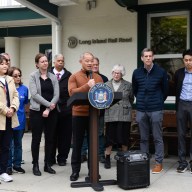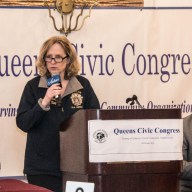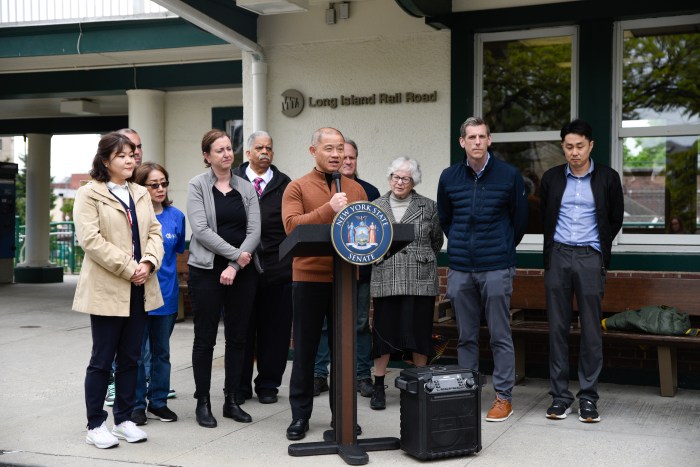By Patrick Donachie
Amid calls to expand the free lunch program to all students in New York City’s public schools, an analysis by the city’s Independent Budget Office found the costs of expanding the program could be as much as $23 million, and changes to federal policy could endanger it further.
Advocates for expanding the city’s free-lunch program maintain that a universal program could help stop any stigma that may cause students to avoid taking lunches. The city launched a pilot program several years ago in 185 middle schools, and the IBO analyzed the 2014 school year to extrapolate the cost of enlarging its reach.
Free lunch programs are partially subsidized by federal funding and consist of several different possible programs, all in use in New York City schools. The federal government reimburses the city $3.24 for all free lunches served, which is less than the cost to the city. Approximately one million students in the city benefit from free lunch, breakfast and other food service programs.
Schools can also use Universal School Meals and the Community Eligibility Program, alternatives to the traditional model that shift the eligibility criteria to schools as opposed to individual students. Eligibility in CEP is determined by whether the student or his or her family is eligible for food stamps, cash assistance or Medicaid. If the number of such students is higher than 40 percent in a given school, it can enroll in CEP.
The DOE estimated the annual cost of the 2014 pilot program at $49 million, with the federal government reimbursing $39 million. If citywide participation rates did not change from the pilot program rates, about 141,870 students would participate in a free K-5 lunch program citywide which would cost about $103 million per year, according to the IBO.
The IBO determined federal funding would remain the same whether schools used the traditional model or Universal School Meals, though estimated federal reimbursement would be slightly higher through the Community Eligibility Program.
The net cost to the city would be the lowest by using the traditional model, at $31.5 million, although the IBO said CEP would be the most cost-effective approach due to reduced paperwork and other benefits.
Sustained federal funding of the CEP is endangered by new legislation that would transform program funding into a “block grant,” a set amount of money that might not cover actual program costs, according to the IBO.
“If funding does not keep pace with growth in costs and local demand, school districts would be faced with the choice of contributing additional funding from other sources or reducing the scale of the programs,” the report said.
The full report is available at www.ibo.nyc.ny.us/
Reach reporter Patrick Donachie by e-mail at pdona































